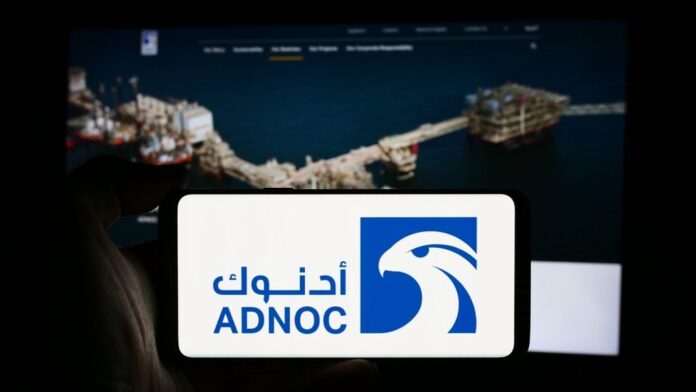safe
Envana Receives $5.2m Grant from US DOE for Methane Technology Development
Envana Software Solutions (Envana) has secured a grant from the US Department of Energy (DOE) to enhance methane monitoring and mitigation technologies in the oil and gas sector.
The $5.2m funding is part of the DOE’s methane emissions reduction programme launched in collaboration with the US Environmental Protection Agency (EPA). The programme is aimed at supporting innovative solutions to reduce the environmental impact of methane emissions from oil and gas operations.
The grant awarded to Envana totals $5,261,685, with $4,209,348 coming from federal funds and $1,052,337 contributed by non-federal sources.
Envana’s project, ‘Software for methane leak detection using SCADA data to guide mitigation”, was chosen as one of the solutions under area of interest 2c: field deployment of emissions reduction technologies at oil and gas production facilities.
Programme Objectives and Benefits
According to the company, Envana’s platform is designed to integrate operational data with methane detection and measurement inputs, facilitating precise emissions quantification and source attribution.
This supports oil and gas operators, tribes and other entities in enhancing their leak detection and repair programmes and implementing effective emissions reduction strategies.
The programme aims to reduce methane emissions from oil and gas operations, which contribute significantly to climate change and other environmental issues.
By supporting innovative technologies and solutions, the programme helps to promote sustainable practices and reduce the environmental impact of the oil and gas industry.
Methane Emissions Reduction Programme
The methane emissions reduction programme is a collaborative effort between the DOE and the EPA to support innovative solutions to reduce methane emissions from oil and gas operations.
The programme is aimed at promoting sustainable practices and reducing the environmental impact of methane emissions from oil and gas operations.
The programme provides funding and support for projects that aim to reduce methane emissions from oil and gas operations, including those that use advanced technologies and innovative approaches.
Envana’s project is one of the solutions under area of interest 2c: field deployment of emissions reduction technologies at oil and gas production facilities.
The programme is open to a wide range of stakeholders, including oil and gas operators, tribes and other entities that are involved in the oil and gas industry.
The programme provides a framework for stakeholders to collaborate and share best practices in reducing methane emissions from oil and gas operations.
Envana’s Platform for Methane Leak Detection and Mitigation
Envana’s platform is designed to integrate operational data with methane detection and measurement inputs, facilitating precise emissions quantification and source attribution.
The platform uses advanced technologies and innovative approaches to reduce methane emissions from oil and gas operations.
The platform provides real-time data and analytics to support oil and gas operators in enhancing their leak detection and repair programmes and implementing effective emissions reduction strategies.
Envana’s platform is designed to be flexible and adaptable to meet the needs of different stakeholders and operations.
The platform provides a range of benefits, including improved accuracy and precision in emissions quantification and source attribution, reduced costs and increased efficiency, and improved regulatory compliance.
Envana’s platform is designed to support the development of a more sustainable and environmentally-friendly oil and gas industry.
Conclusion
Envana has secured a grant from the US Department of Energy to enhance methane monitoring and mitigation technologies in the oil and gas sector.
The grant is part of the DOE’s methane emissions reduction programme launched in collaboration with the US Environmental Protection Agency.
Envana’s project, ‘Software for methane leak detection using SCADA data to guide mitigation”, was chosen as one of the solutions under area of interest 2c: field deployment of emissions reduction technologies at oil and gas production facilities.
The grant provides funding and support for Envana’s project, which aims to reduce methane emissions from oil and gas operations.
Envana’s platform is designed to integrate operational data with methane detection and measurement inputs, facilitating precise emissions quantification and source attribution.
Envana’s platform is designed to support the development of a more sustainable and environmentally-friendly oil and gas industry.
Conclusion
Conclusion:
In a groundbreaking development, Envana, a leading player in the renewable energy sector, has received a substantial $5.2 million grant from the US Department of Energy (DOE) to advance its methane capture and utilization technology. This significant funding milestone marks a crucial step towards mitigating the global methane emissions crisis and further underscores the industry’s commitment to transitioning towards a more sustainable future. As discussed in the article, the grant will be utilized to develop innovative technologies for capturing methane and converting it into valuable chemical products, such as methanol and hydrogen, which can be used as clean energy sources or feedstocks for various industries.
The implications of this development are far-reaching, with the potential to unlock significant reductions in greenhouse gas emissions from the oil and gas sector, a major contributor to global warming. Furthermore, the successful deployment of Envana’s technology could pave the way for the widespread adoption of methane capture and utilization in various industries, leading to a substantial decrease in emissions and a more sustainable energy mix. As the world grapples with the challenge of achieving net-zero emissions, innovative solutions like these will be crucial in driving progress towards a cleaner, more sustainable future.
As we look to the future, it is clear that the development and deployment of methane capture and utilization technologies will play a critical role in shaping the energy landscape. With the US DOE’s grant, Envana is poised to take a significant leap forward in this endeavor, and its success will undoubtedly inspire others to follow suit. As we continue to navigate the complexities of a rapidly changing energy landscape, one thing is certain: the future of energy will be powered by innovation, and Envana’s pioneering work in methane capture and utilization is a shining example of what is possible when vision meets determination.

